Antibodies (AT) are present in the body of every person. Thyroid peroxidase (thyroid peroxidase or TPO for short) is a special enzyme that is involved in the synthesis of the production of iodine-containing hormones. If the level of antibodies to this enzyme is greatly increased in women or men, this can provoke health problems.
Record content:
- 1 Functions in the body
- 2 How and under what conditions are produced
- 3 Indicator table is normal
- 4 Increase symptoms
- 5 Reasons for the increase
- 6 Indications for research
- 7 How is it determined
- 8 Preparation and analysis
- 9 Decoding the results and when to see a doctor
-
10 How to bounce back
- 10.1 Medications
- 10.2 Traditional methods
- 10.3 Other methods
- 11 Possible complications
- 12 Thyroid peroxidase antibodies video
Functions in the body
Antibodies to TPO are called immunoglobulins, that is, they are part of the defense system. In a certain amount, they are in the body of every person. If there are problems with immunity, then antibodies begin to be produced above the norm. This often happens if a patient is diagnosed with an autoimmune endocrine disease.
Due to too active synthesis of antibodies, they begin to attack also protein compounds. The body's defense system can begin to perceive the cells of the thyroid gland as foreign, sending more antibodies to this organ, which begin to have a destructive effect on it.
The production of active forms of iodine is impossible without TPO. Thyroglobulin, in turn, is one of the most important components that are involved in the process of protein iodification. If too many antibodies to TPO are produced, then the activity of iodine decreases, which leads to a deterioration in the synthesis of hormones of the theroid group.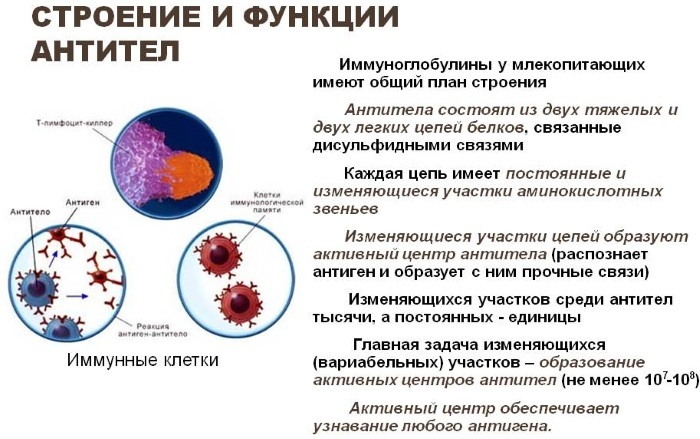
If there is a deficiency of thyroxine and triiodothyronine in the human body, then in childhood it will grow more slowly. Also, doctors often diagnose problems with the gastrointestinal tract, heat exchange.
The heart muscle becomes weaker. Also psychosomatic disorders often develop. Deficiency of essential substances leads to problems with the nervous system, abnormal development of the skeleton.
Thus, with a normal ratio of antibodies and thyroid peroxidase:
- the hormonal balance is maintained in an optimal ratio;
- the correct functioning of the thyroid gland is carried out;
- the endocrine system works flawlessly;
- an active fight against toxins entering the body is carried out.
How and under what conditions are produced
Antibodies to thyroperoxidase are strongly elevated in women more often than in men. The enzymes themselves are produced by the so-called B-lymphocytes, if they begin to perceive TPO as foreign protein compounds. If too many of these antibodies are produced, they attack the thyroid cells, which produce the hormones T3 (thyroxine) and T4 (triiodothyronine).
When the hormones created by the thyroid gland begin to be excreted in large volumes from the body, this will lead to a serious drop in their performance (the most noticeable problem becomes after 2-3 months). The antibodies themselves continue to be synthesized in an increased volume, and the cells of the body do not have time to replenish the deficiency of T3 and T4. Instead of connective tissue, B-lymphocytes are formed.
Indicator table is normal
If the deviations from the norm are insignificant, then this is not a sign of pathology. As a rule, small failures are easily eliminated after diagnosis, when the doctor determines the factors that provoked the small jump. Normal values depend on the age of the patient. The rates are the same for men and women.
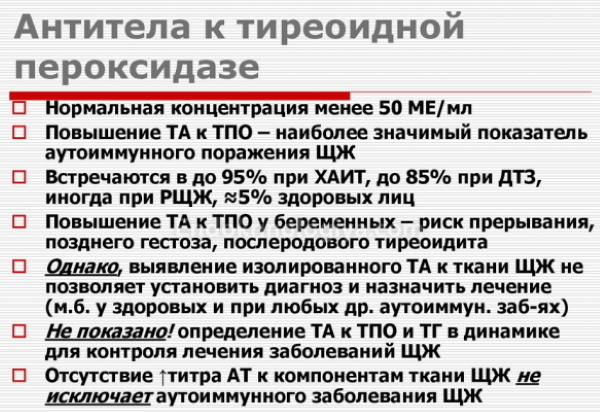
Features of the research method |
Age, years | Normal values (from and to) units / ml |
| The use of a special luminescent serum (the study is carried out by the immunoluminescent method) | <50 | 0 – 34,9 |
| Immunoluminescent method | >50 | 1 – 99,9 |
| An enzyme label is used to register the signal (enzyme-linked immunosorbent assay) | <50 | 0 – 30 |
| Immunoassay research | >50 | Less than 50 |
Test results may vary. Much depends on the laboratory, equipment, research method. Doctors can use different units of measurement, test systems. On average, a person (not suffering from chronic pathologies) should have no more than 35 units / ml.
However, regardless of age, the number of antibodies can be increased by 20 units, which is also considered the norm. In this case, no additional therapeutic measures are taken.
There are many reasons that can provoke a slight increase in antibodies to TPO. For example, a patient may have a genetic predisposition. Some people take drugs that contain iodine, which also affects the performance. A slight increase in AT-TPO is observed after a viral illness, as well as in chronic infections.
If the indicators are noticeably higher than the norm and the permissible excess, then additional research is needed. They will rule out or confirm the presence of thyroid problems.
Increase symptoms
Antibodies to thyroperoxidase are strongly elevated in women and men if the defense system has failed. At the initial stages of an increased content of immunoglobulins (the pathology is called thyroperoxidases), a person may not notice serious manifestations of the disease.
As a rule, it all starts with symptoms that resemble hypothyroidism (a lack of hormones produced for the normal functioning of the thyroid gland).
For example, a patient may complain about:
- increased weakness and fatigue;

- poor condition of hair (they begin to fall out strongly), nails (exfoliate and look very brittle) and skin (the skin becomes paler);
- constant feeling of thirst;
- strong sweating (manifests itself even at rest);
- sleepiness during the day and insomnia at night;
- swelling of the lower extremities;
- frequent headaches that may be accompanied by dizziness;
- signs of hypothermia (body temperature can drop to 36 ° C) and hypotension (low blood pressure);
- frequent constipation, flatulence, increased gas production;
In a more serious condition, a woman loses the ability to conceive a child. If a sharp jump in antibodies occurs during pregnancy, then such a condition can even provoke a miscarriage.
Reasons for the increase
The nature of the occurrence of autoimmune pathologies has not yet been fully understood. As a rule, a person's immune defense is formed during the first 13-15 years of life. During this time, lymphocytes "begin to understand" how to recognize foreign proteins in order to begin an active fight against infection.
Nevertheless, it is not uncommon for special lymphocytes to be synthesized, which also attack their own proteins. This is necessary if the body is already infected and it is necessary to eliminate the damaged cells.
Today, several factors are known that are capable of provoking the synthesis of special lymphocytes:
- Gene mutation. It is about the hereditary transmission of the gene. A person can suffer from a pathology that affects a certain organ for a long time. Or the autoimmune pathology is acquired, and the lesion does not extend to a single organ, but to several systems at once.
- Effects of radiation or infections. In this case, a molecular change in tissues also occurs. Because of this, the body's defense system ceases to perceive them as its own and attacks healthy, but altered, cells.
Increased levels of antibodies to OLT are not always a sign of a progressive autoimmune disease. More than 15% of healthy people showed signs that they are carriers of such antibodies.
Antibodies to thyroperoxidase can be strongly elevated in women or men with a number of additional factors.
For example, doctors make a similar diagnosis when:
- signs of viral diseases;
- long-term inflammatory processes in the patient's body;
- genetic predisposition to the synthesis of more active antibodies;
- injuries and other injuries that could disrupt the integrity of the thyroid gland;

Antibodies to thyroperoxidase are strongly elevated in lupus
Among the diseases that can also cause the growth of antibodies to OLT are lupus, diabetes mellitus and chronic thyroiditis. In women, signs of thyroid peroxidase are sometimes diagnosed after childbirth, against the background of inflammation of the thyroid gland.
According to statistics, about 8% of women in childbirth subsequently face a similar problem. Also, after childbirth, the woman's immune system is faced with increased stress, which can also provoke jumps in antibodies.
Indications for research
Research is ordered in a number of situations. For example, if:
- The patient is diagnosed with thyroid disorders. At the same time, the damaged organ is increased in size, and the TSH (thyroid stimulating hormone) indicators also significantly exceed the permissible value.
- The patient is worried about severe swelling of the legs in the lower leg area. In this case, ointments and diuretics do not have any positive effect.
- The doctor plans to prescribe the patient a course of treatment with interferon, lithium or amiodarone. The fact is that these medicines can provoke the growth of antibodies, respectively, if this parameter is already exceeded, then this will lead to serious complications.
- A woman cannot get pregnant for a long time or she has so-called spontaneous abortions.
- Differential diagnosis of thyrotoxicosis is carried out.
- After examination, the patient was found to have changes in the endocrine gland at the structural level.
- There is a suspicion of the development of autoimmune pathologies (provoked by systemic diseases) of other organs.
If a woman was irradiated before the age of 20 or after 60 years, tests for the level of antibodies are also carried out. In other cases, such a diagnosis is not performed. In rare cases, such diagnostic measures are carried out for newborns. Studies are carried out if the mother of the child has been diagnosed with an increase in antibodies to TPO.
Thanks to studies of antibodies to thyroid peroxidase, it is possible to accurately diagnose Graves' disease, autoimmune thyroiditis and other diseases.
To conduct research on the level of antibodies to PRP, you must contact an endocrinologist. It is also worth visiting a hematologist and therapist.
How is it determined
The main indicator of autoimmune thyroid disease is the so-called AT titer. It allows you to determine the presence of pathology at the very initial level. The tests themselves for the level of antibodies are included in the so-called thyroid screening panel. This means that the patient must be tested for TSH, triiodothyronine (total and free), and thyroxine.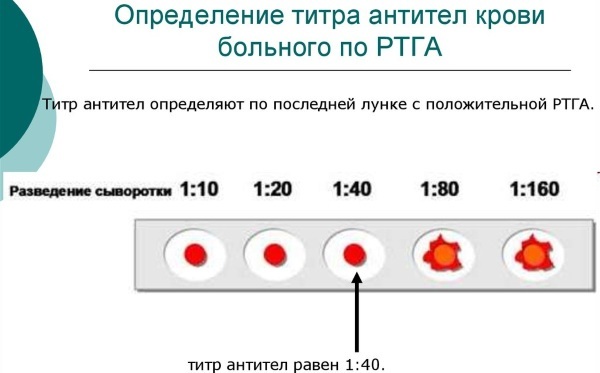
Antibodies to thyroperoxidase are strongly elevated in postpartum women. If this happens, then, as a rule, 8-10 months after the birth of the child, the antibody levels return to normal. However, during pregnancy, it is sometimes necessary to carry out tests, since ATs can pass through the hematoplacental barrier and negatively affect the health of the fetus.
In order to assess the indicators of AT-TPO, an analysis of venous blood is performed. Her fence, as a rule, is always done immediately after surgery on the thyroid gland (for example, when it is removed) or after a serious infectious disease. If inflammatory processes occur in the patient's body, then the research results may be distorted.
If, according to the results of the research, it is possible to find out that the patient has a too high level of AT-TPO, then he is referred for an ultrasound scan and a biopsy.
Preparation and analysis
There are a number of prerequisites that must be met before taking AT-TPO tests:
- 20 days before blood sampling, it is necessary to completely exclude the intake of any hormonal agents.
- 3 days before the examination, you must not take medications that contain iodine. You also need to exclude dietary supplements.
- For 1 day and directly on the day of the blood sampling itself, you cannot engage in sports activities. It is important to have a good rest, not to be nervous or overworked.
- The day before the research, you should not drink alcohol and smoke (it is advisable to give up bad habits 2-3 days before the procedure).
- In the morning on the day of testing, you should not eat food (even liquid). Studies are carried out on an empty stomach.
- Analyzes must be taken before 11 am.
Decoding the results and when to see a doctor
Test results will be reported as IU / ml or U / ml. According to the table of normal indicators given earlier, it is not difficult to independently figure out if the level of antibodies is elevated. But the problem is that research can be carried out in different ways, so it is not recommended to decode the test results yourself. You need to contact an endocrinologist, and he will make an accurate diagnosis.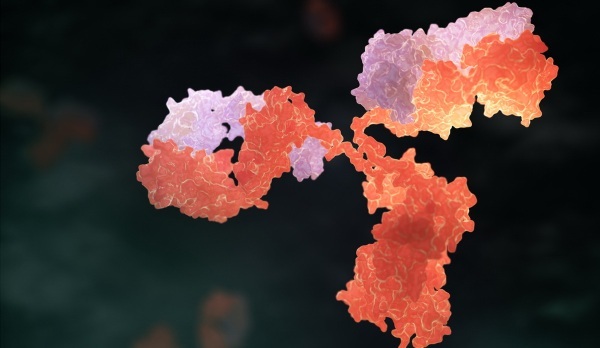
If the patient's body is deficient in T4 and T3 and at the same time a high level of AT-TPO is recorded, then this indicates pathological processes in the thyroid gland or other internal organ. In some situations, an increased antibody level is a temporary phenomenon and does not require treatment, but the normalization of the AT balance. It is impossible to independently determine such nuances.
The endocrinologist considers each situation in private, taking into account other characteristics of the patient's health and the history of his diseases. If he finds it difficult to make a final diagnosis, then the endocrinologist directs the patient for consultation with narrow specialists and additional examinations.
With high fluctuations in antibodies during pregnancy, a woman should visit an endocrinologist and obstetrician-gynecologist to monitor the state of AT. As a rule, the first test is done before 12 weeks of pregnancy, and then every trimester.
In some situations, with an increased AT-TPO index, the doctor can prescribe only a corrective diet. In another case, with the same data, more serious therapeutic measures may be required.
How to bounce back
The method of treatment and normalization of the level of AT-TPO depends on many factors. If the test results show a slight deviation from the norm, then the doctor is limited to drug therapy. If autoimmune thyroiditis has been diagnosed, the course of treatment will take longer, but usually the complete normalization of AT occurs after the first course of taking drugs.
Medications
The drugs used to normalize AT-TPO may differ depending on the individual characteristics of the patient and the method of treatment itself.
For example:
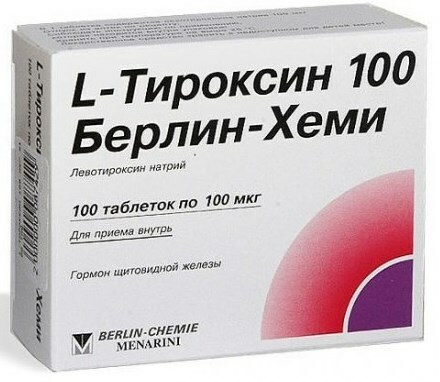
- If the doctor decides to conduct substitution therapy, then he usually prescribes Levothyroxine. It is a synthetic analogue of thyroxine, which makes it possible to compensate for the lack of essential substances. The product should be taken in the morning before meals (about half an hour before breakfast). The tablets should be taken with plenty of water. The dosage is determined by your doctor. The drug is also prescribed for small children and even newborns.
- If, during the diagnosis, problems with the function of the heart muscle were identified, then the doctor prescribes beta-blockers. The specific remedy is selected depending on additional pathology factors. Beta-blockers, based on their classification, include Timolol, Atenolol, Labetalol.
- If, in addition to the pathology of the autoimmune type, the patient suffers from subacute thyroiditis, then the doctor prescribes Prednisol. It is a glucocorticosteroid.
The course of treatment can range from 3 months to 1 year. It all depends on the specific situation, neglect of pathologies, the age of the patient and other factors. Also, in addition, the doctor prescribes treatment, which is aimed at general strengthening of the body's functions.
Traditional methods
Antibodies to thyroperoxidase are strongly elevated in women for various reasons, but regardless of the exact diagnosis, some symptoms of pathology can be removed during treatment with the help of traditional medicine. But you need to understand that such natural remedies are not able to change the antibody performance. These are only auxiliary methods; medication will be required for a full treatment.
If the doctor is not against the use of folk remedies, then there are several effective methods for relieving the symptoms of AT-TPO:
- Wormwood. An increased rate of antibodies provokes the development of autoimmune thyroiditis. It manifests itself in the form of an enlarged goiter and the thyroid gland itself. Additionally, patients complain of pain in the area where the thyroid gland is located. To get rid of pain, you can prepare a medical compress. To do this, melt 200 g of pork lard in a water bath and mix it with the same amount of dry wormwood. The resulting compress (while it is still warm) should be applied to the neck and left in this position overnight. The course of treatment is 2 weeks.
- To relieve pain, you can prepare a medicinal infusion. To do this, mix 25 g of pine buds with 50 g of kelp. Add a plantain leaf, a little honey and lemon juice to the same mixture. The resulting mixture must be heated in a water bath for 20-30 minutes. After that, the ready-made infusion should be drunk at 1 tbsp. l. three times a day before meals (20 minutes). The first positive results from this additional treatment will be noticeable in about a month.
Other methods
Additionally, the doctor may recommend starting the intake of dietary supplements and vitamins. They will help strengthen the body's defenses. Also, on an individual basis, the doctor prescribes a diet, which is necessary if a possible acute iodine deficiency is suspected.
In some situations, surgery is required. For example, an operation is prescribed in case of complete ineffectiveness of drug therapy or if a tumor (benign or malignant) of the thyroid gland was found in the patient. Also, surgical intervention is provided for complications or in case of recurrence of pathology.
If a decision was made about the operation, then the patient is referred for subtotal or complete thyroidectomy.
Possible complications
Abnormalities in the work of the thyroid gland are especially dangerous for women who plan to become pregnant in the future, since this pathology can provoke an early miscarriage or the formation of anomalies during development fetus. In addition, if the content of AT-TPO is too high, there is a risk of developing hyperthyroidism, severe hormonal disruptions.
If the patient develops hyperthyroidism, then this is dangerous because a tumor may form in the thyroid gland. However, it will not necessarily be benign. But in any case, there should not be any neoplasms in this organ, since this negatively affects the state of the whole organism. Therefore, AT-TPO requires compulsory treatment.
Antibodies to thyroperoxidase can be strongly elevated in women and men at any age. If it was possible to make such a diagnosis, then it is necessary to start treatment immediately, since in the absence of therapeutic measures, surgical intervention will have to be performed in the future.
Thyroid peroxidase antibodies video
What to do if antibodies to thyroperoxidase are elevated:



